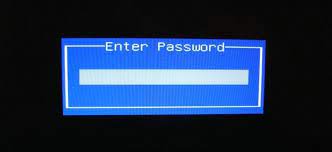5 Reasons Why You Shouldn’t Change the BIOS Password

5 Reasons Why You Shouldn’t Change the BIOS Password
There are a few reasons why you might want to think twice before changing the BIOS password on your computer. Here are five of them:
1. If you forget the BIOS password, you’ll be locked out of your own computer.
2. The BIOS password is one of the last lines of defense against someone trying to break into your computer. If someone can bypass the BIOS password, they’ll have free rein to do whatever they want on your machine.
3. Changing the BIOS password can make it difficult for you to get technical support from your computer’s manufacturer or from third-party service providers. They may not be willing to help you if they suspect that you’ve changed the BIOS password without good reason.
4. Some computers have a “master” BIOS password that can be used to override any other password set on the system. If you change the BIOS password and then forget it, there’s no way to reset it except by sending the computer back to the manufacturer or taking it to a qualified repair shop.
5. Finally, changing the BIOS password is just one more thing that you have to remember. If you’re not absolutely sure that you’ll remember the new password, it’s probably not worth changing in the first place.
forgot computer password windows 10
If you’ve forgotten your computer password for Windows 10, there are a few things you can do to try and reset it. However, changing the BIOS password is not one of them. Here’s why:
1. The BIOS password is not stored on your hard drive, so changing it will not affect your ability to access your files or data.
2. The BIOS password is used to protect the BIOS settings from being changed by unauthorized users. If you change the BIOS password, anyone who knows the new password will be able to change the BIOS settings.
3. The BIOS password is used to prevent unauthorized access to the computer’s boot sequence. Changing the BIOS password could allow someone to boot your computer into a malicious operating system or make other changes that could harm your computer.
4. The BIOS password is used to prevent unauthorized access to the computer’s hardware. If you change the BIOS password, anyone who knows the new password will be able to make changes to your computer’s hardware, which could potentially damage it.
5. Changing the BIOS password is generally unnecessary and may cause more problems than it solves. If you forget your BIOS password, there are other ways to reset it that won’t cause any of the problems listed above.
windows setup share drive

If you’re like most people, you probably don’t change the BIOS password on your computer very often. In fact, you may not even know what the BIOS is or what it does. The BIOS is a small piece of software that helps your computer start up and allows you to change basic settings like the boot order.
One of the reasons you shouldn’t change the BIOS password is because it can be difficult to remember. If you forget your password, you may not be able to access your computer’s BIOS settings and change them back.
Another reason is that changing the BIOS password can make it more difficult for someone to troubleshoot your computer if something goes wrong. If you’re not sure what you’re doing, it’s best to leave the BIOS password alone.
Finally, changing the BIOS password can also void your warranty. So if something does go wrong after you change the password, you may not be able to get help from the manufacturer.
Overall, it’s best to leave the BIOS password alone unless you’re absolutely sure you know what you’re doing and you have a good reason for changing it.
windows 10 linux
If you’re running Linux on your computer, there’s no need to change the BIOS password. Linux is a secure operating system that doesn’t require any additional security measures. In fact, changing the BIOS password can actually make your computer less secure.
Here are 5 reasons why you shouldn’t change the BIOS password on a Linux computer:
1. There’s no need for extra security.
Linux is already a secure operating system. Changing the BIOS password won’t make it any more secure.
2. It could make your computer less secure.
If you forget your BIOS password, you’ll be locked out of your own computer. This could lead to serious security problems if someone else gains access to your machine.
3. It’s unnecessary complexity.
Changing the BIOS password adds an extra layer of complexity to your computer. If something goes wrong, it will be more difficult to troubleshoot and fix.
4. It could void your warranty.
If you change the BIOS password on a laptop or desktop that’s still under warranty, you could void the warranty. This means you’ll have to pay for any repairs yourself.
5. You might forget the password yourself.
There’s always the possibility that you’ll forget the BIOS password yourself. If this happens, you’ll be locked out of your own computer until you can reset it or find someone who knows the password.
